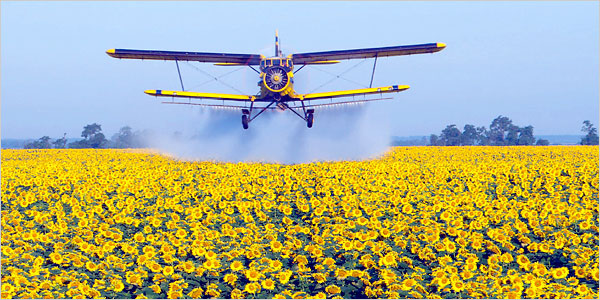|
Reviews of Recent Independent, Foreign, & Documentary Films in Theaters and DVD/Home Video
 OUR DAILY BREAD
Documentaries sometimes strive to dispense with judgment, doing back flips to capture their subject with cool objectivity. Our Daily Bread elegantly succeeds by dispensing with everything short of a camera lens. It lends us a pair of eyes to see the hidden world of industrial food production, but doesn’t offer a narrative or an obvious angle. The only soundtrack that accompanies the long, steady shots of sterile buildings and sprawling modern farms is one of whirring machines and caged animals. A few times, a conversation among workers threatens to humanize the landscape, but the muffled sounds remain as insignificant as the chirps. Austrian director Nikolaus Geyrhalter surveys unidentified factories (all we can guess is that they are in Europe), where chickens, pigs, cows, fruit, and vegetables are prepared for our consumption. With subtle editorial elegance, one lingering scene follows another, as lone workers quietly perform a tedious daily duty, like stuffing chickens into plastic crates or adjusting apples in swiftly gliding containers. A comforting image of dazzling sunflowers can be followed by a horrific slaughter or a surgical delivery of a calf—performed through a gaping hole on the side of a standing cow, nightmarishly unaffected by what’s happening. Our emotions are jerked from revulsion to calm, but our curiosity remains constant. There seems to be such a distance between the chicken on our plate and the futuristic environment where thousands of chicks are sorted, branded, and moved around with the force of tennis balls flying out of a practice machine. And without a word, Geyrhalter brilliantly underscores the contrast. The employee shown cleaning the floor of a slaughter room, silently and diligently, is then filmed eating his lunch, silently and diligently, consuming a gray sandwich or cup of coffee with almost no pleasure or relief. The idea that our collective appetite for this dreary meal is responsible for the endless disposal of living creatures and miles of carefully crafted technology suddenly seems absurd.
This isn’t
The Jungle or Fast Food Nation, or even a pesky lecture
from a crunchy vegetarian as you’re ordering your steak. The
factories shown are clean, effective, and impressively equipped. If we
insist on letting the world consume meat in greater and greater
quantities, there seem to be few options but to treat the animals like
inanimate products that need to be stored, stacked, and killed. But if
the cruelty of the image and the concept becomes too much to bear, we
are faced with the fact that the formidable culprit is industrial food
production itself—not
a shoddy factory or opportunistic manager.
And the triumph of
Our Daily Bread is that the decision to blame or support this
machine is entirely ours to make. Yana Litovsky
|

